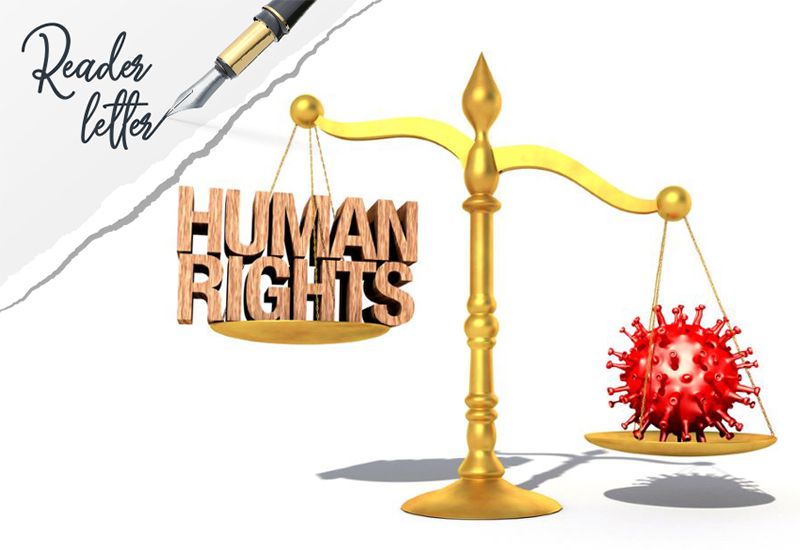


On 24 November, the States' Assembly approved the Emergency Powers (Coronavirus) (General Provision) (Bailiwick of Guernsey) (No. 13) Regulations, 2021.
Six deputies voted against: David De Lisle, Sam Haskins, Sasha Kazantseva-Miller, Lester Queripel, Gavin St. Pier and Andy Taylor.
Two deputies were absent: Chris Blin and Peter Ferbrache.
One deputy abstained: Tina Bury.
The other 30 members of the States voted in favour.
Readers Marc Breton and Nick Robilliard say they "have some grave concerns" about the legislation. They have written to States' members and now share their concerns with Express readers.
"In our view, the provisions of this law are completely excessive in their entirety, particularly in the context of our covid-19 rates of hospitalisation and deaths, which have vastly reduced in 2021, compared to 2020.
When reading this document, you could be forgiven for believing you were reading a policy of a police state, not a supposedly democratic free society.
A particular area of concern is that the Medical Officer of Health (MOH) (an unelected position) is imparted with a huge and unfettered amount of discretionary power. Decisions made by them must be afforded a higher level of scrutiny than this law allows. There appears to be an alarming lack of protection for the rights and freedoms of individuals in the fabric of this law.
Below we have broken out specific sections of the law (3 and 14) which we find to be particularly abhorrent and made comments under each in turn. This is from 3 (2) on page 7:
(a) that P submit to medical examination
The inclusion of this requirement should be completely unacceptable and the clause should be removed. Medical examination could be much broader than having (for instance) a PCR test. It means that a person can be forced to have blood and other samples removed from them against their will.
(b) that P be removed to a hospital or other suitable establishment
This is too vague and clearly grossly excessive. Again, this should not be included at all. In addition, what does suitable establishment mean? A prison? A mental health facility? A quarantine/detention centre? Again, wording must be limited to protect the rights and freedoms of members of the public.
(c) that P be detained in a hospital or other suitable establishment
This is arbitrary detention - same comment as point (b).
(d) that P self-isolate
Further wording in the regulations say that the MOH can impose this for 14 days and then review every 24 hours after that, meaning that it could become indefinite.
(e) that P be disinfected or decontaminated
This suggests the forcing of any treatment that the MOH wishes to impose on the person and could pave the way for mandatory vaccinations, which is immoral.
(f) that P wear protective clothing
What does this mean? No examples are given.
(g) that P provide information or answer questions about P’s health or other circumstances
This wording not limited enough. For example, questions on health should be relevant only to coronavirus and not all aspects of a person’s health.
(h) that P’s health be monitored and the results reported
Similarly to point (a), this wording should be limited.
(i) that P attend training or advice sessions on how to reduce the risk of infecting or contaminating others
How is this necessary when everyone has been bombarded with public health messages for the last two years?
(j) that P be subject to restrictions on where P goes or with whom P has contact
Again, the MOH can impose this for 14 days and recurring 24-hour periods without limitation. This has to be incompatible with an individual’s rights and freedoms in a functioning democracy.
(k) that P abstain from working or trading
There is no limitation, no clarity and no provision for how damaging and distressing this could be to the individual.
On top of the above, in section 14, around detention by a police officer, they are given the power to enter any place (for example, a person’s home) and use force to take them to hospital or (once again) a “suitable establishment”. This is a horrific notion with a complete lack of transparency of meaning and limitation.
In conclusion, we struggle to comprehend how anyone could read this law and not be disturbed by its excesses. To be clear, no deputy who believes this is proportionate is representative of us.
Considering all of the above, we would urge all deputies to carefully review the current and any future regulations before voting accordingly."
Yours faithfully,
Marc Breton & Nick Robilliard